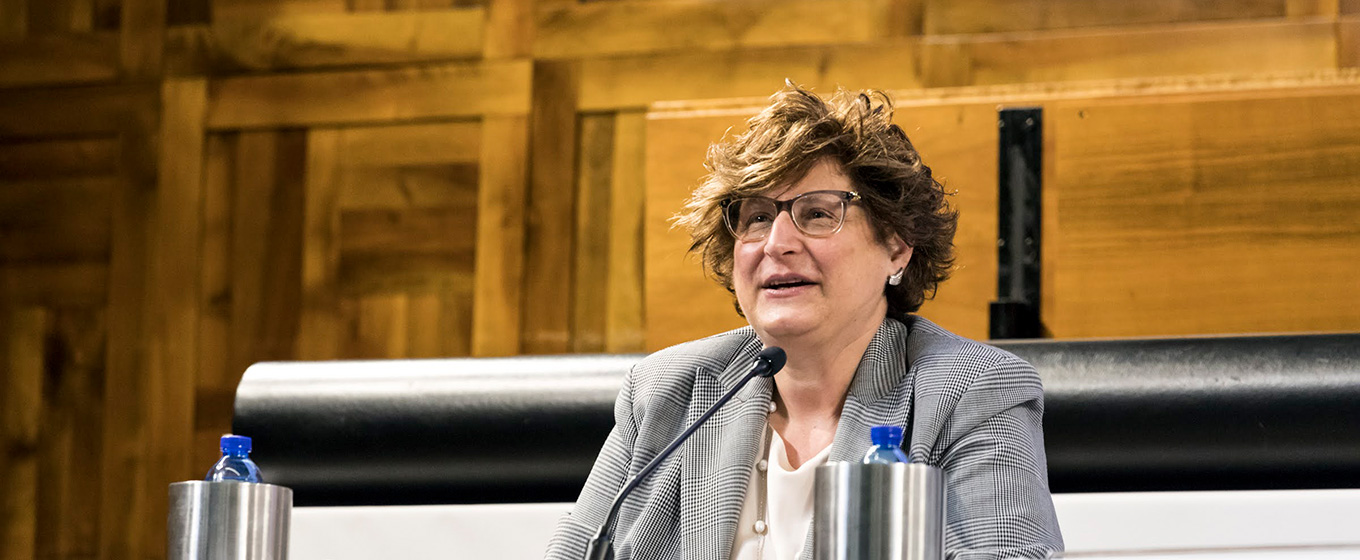The colour of wheat

by Beniamina Cassetta
We have interviewed Professor Elena Marta, Full Professor of Social Psychology and Community Psychology, and President of EDUCatt, the non-profit foundation entrusted by Università Cattolica del Sacro Cuore with the task of providing services related to the right to study in favour of students during their university career.
Our conversation began with a focus on student services and concluded with Professor Elena Marta quoting ‘The Little Prince.’ This is the most precise way to encapsulate her own work at EDUCatt and her passion for the psychological well-being of the Università Cattolica community. “People often tease me for always quoting this one part from ‘The Little Prince.’ It's the bit where the fox is saying goodbye and mentions how wheat doesn’t mean much to her since she doesn’t eat bread. But the golden wheat fields always remind her of her friend's blonde hair. It's like this beautiful symbol of their friendship that sticks with her. And it's funny how it changes the fox's whole outlook on the world. My wish is that every student, thanks to EDUCatt, the faculty, staff, and everyone they meet at Università Cattolica, can hold onto a bit of that same kind of warmth and connection.”
Can you tell us about EDUCatt and its psychological support service?
EDUCatt is a non-profit foundation entrusted by Università Cattolica with the task of providing services related to the right to study in favour of students during their university career. From the very beginning, Father Agostino Gemelli, a doctor, psychologist, and one of the University's founders, had a special interest in health in the broadest sense. A health centre was immediately established, with a general practitioner and various specialists, accompanied by a psychological service. Today, the psychological pathway begins with an initial free meeting and is followed by two subsequent cycles of five meetings, either at a reduced price or entirely free. It's not a psychotherapy path: the goal is to conduct an initial assessment with a professional who can help the student understand how to approach their situation and frame what is happening.
Do international students generally use this psychological support service?
Yes, and to facilitate their access to the service, we have a professional on each campus who can conduct the sessions in English and, where possible, in French. For some of them, the discomfort and sadness are merely a bit of homesickness. For others, moving abroad can bring about much deeper personal issues.
Much of your recent scientific research has focused on the impact of COVID-19 on younger generations. How would you describe the students arriving at Cattolica today, having experienced lockdown during their high school years?
Generation Z faces its own set of challenges, but I would prefer not to speak of them as only isolated or suffering individuals. Moreover, their distress is uniquely linked to reintegrating into a world that has undergone significant changes and can never return to its previous state. We must give them the time and support to rediscover purpose and meaning in their lives as they transition into adulthood.
Do you believe the University, as a community, can be a collective space to reprocess these difficulties?
Absolutely. The University serves as more than just a place for academic instruction; it fosters a supportive community for personal and professional growth. The educational project of a university must facilitate experiences that help to grow as individuals and professionals. For example, our approach at EDUCatt, extends beyond providing a dining service. It's about taking care of a student's dietary habits, allowing them to choose from different foods and having a place to socialise. Similarly, we don't just provide a doctor or psychologist to talk to; we create a context where this service becomes important to you as a member of the student community.
Is there a future project you would like to talk about?
Certainly! For the future, we are organising discussion groups aimed at helping students discuss and process the post-COVID-19 period. As adults, we're often unprepared to cope with events in life, such as loss or failures. The idea that one must always perform well, always be ready to do everything, and always be on time has been disproven. COVID-19 has shown that even something as tiny and invisible as a virus is beyond our control. Then the war between Russia and Ukraine broke out and suddenly the world seemed completely out of control. I believe discussing and addressing these issues in a group setting can be very helpful. The University has also participated along with other universities in the call for the development of projects on psychological well-being, and we are waiting for the final approval from the Ministry of University and Research.

